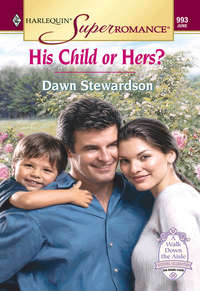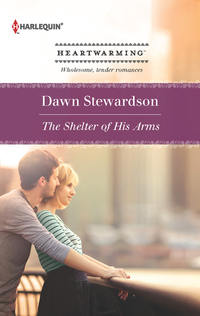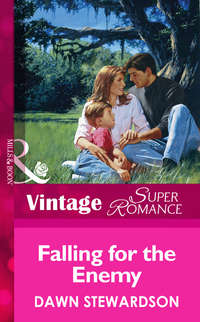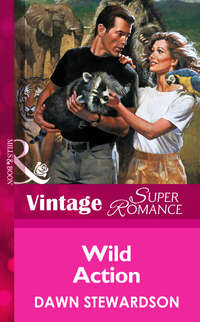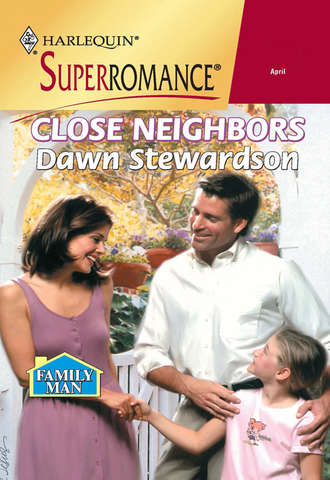
Полная версия
Close Neighbors

“Julie, the man who phoned was just some crazy person,” Chase said
“Honest, Daddy?”
“Yes…” He waited, suspecting his daughter wasn’t quite done.
Sure enough, she said, “Anne was just gonna tell me how we could stop the police from thinking Aunt Rachel killed Graham.”
“You told Anne that Rachel is the girlfriend the reporters are referring to?”
“No, just that I knew somebody with a problem….”
“Julie, why did you think you should talk to Anne about this?”
“Because she knows all about what the police do. When Penelope Snow figures things out in Anne’s books, that’s only make-believe. Really it’s Anne.”
“I know, baby. But when she makes up a story she puts in details that all fit together. That doesn’t mean she can figure out a real-life mystery.”
“Yes, she can. ’Cuz she used to be a private detective. She told me her father’s one, too.”
“Really,” he said again, his brain shifting gears. Here he was, not knowing what on earth he should do, and he’d suddenly acquired a neighbor who might be able to give him some advice. “Julie? Do you think it would be okay if I went back over and talked to Anne with you?”
Dear Reader,
Close Neighbors is a story about relationships, not only the developing romantic one between Anne Barrett and Chase Nicholson, but also the long-established ones in Anne’s and Chase’s families—particularly between Chase’s nine-year-old daughter, Julie, and the significant adults in her life.
The book spans a short period of time, yet each of these relationships evolves during the story. Most of us find change frightening, but as Julie’s grandmother tells her, “Darling, if everything always stayed the same, life would be awfully boring.”
I think it’s safe to say that Close Neighbors is anything but boring.
This book is special to me because my father helped me plot a good deal of it while he was in the hospital. That gave me a wonderful head start when it came to the actual writing, so if you ever find yourself spending a lot of time visiting someone in the hospital, you might consider trying your hand at a book. In the meanwhile, I hope you enjoy Close Neighbors.
Warmest,
Dawn Stewardson
Close Neighbors
Dawn Stewardson

www.millsandboon.co.uk
This one is for my father, who spent countless hours helping me with the plotting.
And for John, always.
CONTENTS
PROLOGUE
CHAPTER ONE
CHAPTER TWO
CHAPTER THREE
CHAPTER FOUR
CHAPTER FIVE
CHAPTER SIX
CHAPTER SEVEN
CHAPTER EIGHT
CHAPTER NINE
CHAPTER TEN
CHAPTER ELEVEN
CHAPTER TWELVE
CHAPTER THIRTEEN
CHAPTER FOURTEEN
CHAPTER FIFTEEN
EPILOGUE
PROLOGUE
“THERE. ALL DONE.” Julie set a third glass of water on the table and smiled, then felt awful when Aunt Rachel didn’t smile back.
She hadn’t smiled all day. In fact, she’d been crying earlier. She’d come out of her room with her eyes red and her face puffy. So even though both she and Daddy kept saying there was no reason to be worried, Julie knew there was.
They’d kind of fooled her this morning, when they’d sat her down and explained what had happened. They’d made it sound okay.
Well, okay wasn’t exactly right. If you knew somebody and he got killed, it was probably never okay. But they’d said it was just one of those unfortunate things, so she hadn’t really been afraid. Not until the police detectives arrived.
That had been scary. And the stuff on TV was even worse.
At first, Daddy wasn’t going to let her watch it. Then he’d decided she’d see it at a friend’s house or something, anyway, and it would be better if she watched with them—so they could explain what was true and what wasn’t.
It was the stuff that wasn’t true that had been really bad. ’Cuz even though the newspeople never said Rachel’s name, they kept talking about an ex-girlfriend being the last person to see Graham alive—except for the killer. Only, somehow, they made it sound as if the police thought Rachel was the killer.
Daddy’d said they just did things like that so people would watch their news instead of somebody else’s. But when they made it sound like your aunt was a murderer, you felt awful.
“Hon?” Rachel glanced at her, then dropped a handful of spaghetti into the boiling water. “Would you go tell your dad that dinner’s in ten minutes?”
“Sure.”
She headed out of the kitchen and started up the backstairs. Her friends thought it was funny that their house had an extra set of stairs. But after her mom left, Daddy built a big addition across the back—so they’d have a family room downstairs and his office upstairs—and he’d put in the second staircase.
That was way before she’d started school, and he’d wanted the office so he could work at home more. Then, after her aunt moved in, one of them was almost always home. Rachel only worked when she had an assignment taking pictures to go with a magazine article or something.
Just as Julie reached the upstairs hall, the office phone began ringing. That meant she’d have to make one of those throat-cutting signs to her dad, ’cuz Rachel hated when the spaghetti got cooked too long, and—
“You’re insane!”
Daddy’s words froze her before she reached the doorway. He sounded angry, but kind of afraid, too, and he was never afraid.
Listening in on someone else’s conversation was against the rules, but she stayed right where she was, barely breathing.
“Of course I know they haven’t found it.”
Her heart had begun thumping, and she half wanted to run back down the stairs, half wanted to stay and hear more.
“You’re out of your mind! She didn’t kill him, so her fingerprints can’t be on it.”
The words kill and fingerprints started a hot, prickly feeling in her chest. She wished she’d decided to run back downstairs, because she was getting so scared that she felt like hiding in her closet, the way she used to when she was real little.
“You bastard! We’ll see what the cops think about that!”
Her eyes began to sting with tears. Daddy never swore. Maybe hell or dammit, sometimes, but never anything worse.
“Oh? And if I do call them? Are you going to walk into police headquarters with that gun? Don’t you think they’d have the brains to—”
One Mississippi, two Mississippi, three Mississippi, she silently counted. How many seconds would it take for Daddy to hear what would happen if he called the cops?
She kept counting and counting but never found out.
The next thing she heard was the little beep his cordless made when you clicked it off.
CHAPTER ONE
“SWANSEA, SWANSEA, how I love ya, how I love ya…”
Her song dissolving into laughter, Anne stepped out of the shower and grabbed a towel. She was such a dreadful singer that anyone hearing her would take off running. This morning, though, she felt so good she doubted it would bother her.
Rather than having to sleep through the rumble of streetcars and honking horns in downtown last night, she’d been treated to silence. And she’d awakened to the twitter of birds.
Thus far, she thought, searching through a carton labeled Shorts & Stuff, not a single one of her brand-new-home-owner fears had become a reality. And even though she’d barely moved in, she was already starting to think her real estate agent had told her the truth. That she’d never regret buying in the peaceful west-end neighborhood of Swansea.
Of course, only yesterday morning, some dog walker had discovered a body in nearby High Park—the body of a police detective, no less. She’d heard about it on the news last night, while she’d been making sure her clock radio had survived the move. But murders were uncommon in Toronto, especially in tony areas like the High Park district.
After finally finding a T-shirt that wasn’t too wrinkled, she pulled it on and headed downstairs. There, the mountains of boxes seemed to have multiplied overnight. But even that wasn’t enough to dampen her mood.
She started the coffee brewing, spent a few minutes searching for her laptop, then carried it and a mug of coffee out to the patio table.
Some of the friends who’d helped her move had offered to come back today. And her father had downright insisted. But she’d convinced even him that she wanted to spend the first day in her new home alone.
And now that it had turned out to be so gorgeous…well, there was just no way she could waste a July-perfect morning unpacking. Not when she had such a terrific idea for her next book that she was positively itching to get started.
While the computer ran its warm-up checks, she sat happily contemplating her new little corner of the world—bright sky above, light breeze rustling the leaves of her twin aspens, the pool’s water sparkling with diamonds, and…someone spying on her.
A vaguely uneasy feeling stole up her spine. She’d never had much in the way of woman’s intuition, but she did have a sixth sense that warned her when she was being watched.
Hoping someone was merely curious about the new neighbor, she slowly scanned the length of the cedar privacy fence—seeing no one, yet certain someone was there. A couple of seconds later she heard a quiet creak, and the gate to the yard backing onto hers opened a few inches.
A girl of eight or nine peered tentatively over at her, a skinny little thing with long, pale hair.
“Hi.” Anne shot her a smile. “Are you my neighbor?”
The child nodded solemnly.
“Well, I’m Anne. And you’re…?”
“Julie.”
“That’s a pretty name.”
“Thanks. It’s really Juliette, but nobody ever calls me that.”
“Ah. Do you wish people would?”
When the girl simply shrugged, then stood looking uncertain, Anne nodded toward her mug. “I guess you’re a little young for coffee?”
“I tried it once, but I didn’t like it.”
“Well, I’ve got orange juice in the fridge. How about some of that?”
“Umm…my dad said I shouldn’t bother you.”
“You’re not. So why don’t you come and sit down while I get some juice.”
“No, that’s okay. I already had my juice. But do you think I could talk to you for a minute?”
“Sure.”
Julie closed the gate, then skirted the end of the pool and silently sat down.
“Did you want to talk about anything in particular?” Anne finally prompted.
“Do you really write the Penelope Snow mysteries?”
“Yes, I do.”
“I like them. My aunt buys them for me.”
“Well, that’s good to hear. But how did you know who I was?”
“’Cuz my aunt asked Mrs. Kitchner who our new neighbor was gonna be. That’s who lived here before. Mr. and Mrs. Kitchner.”
Anne nodded. “I met them the first time I came to look at the house.”
“Well, Mrs. Kitchner told Rachel—that’s my aunt—what your name was, and said you wrote books for kids. And Rachel knew right away who you were. But when I saw you…you kind of look like the picture on the books, but different.”
“I know. I always freeze when there’s a camera pointed at me.”
“Rachel says lots of people do. She’s a photographer. That’s what I’m going to be when I grow up.”
“You are, eh?”
Julie nodded. “Rachel gave me one of her old cameras and taught me how to do all the settings and everything.”
“It sounds as if you and Rachel are pretty close.”
“Uh-huh. She lives with me and my dad. ’Cuz my mom and dad are divorced.”
Anne hesitated, not sure if she should say that was too bad.
Before she could decide, Julie added, “My mom’s a singer. And she lives in Los Angeles now, ’cuz it’s where the best jobs are.”
“Ah.” She left it at that, although she couldn’t help wondering what kind of woman would move thousands of miles away from her child.
“Under your picture on the books?” Julie said. “It says you used to be a private eye.”
“Uh-huh. That’s what my father is, and I used to work for him—until I discovered that writing books was more fun.”
“But it’s ’cuz you were a detective that you know how to solve mysteries, right? I mean, you pretend it’s Penelope who figures everything out, but it’s really you.”
“Exactly. That’s the way writing books works.”
“So…you could probably figure out just about anything.”
“Well, I wouldn’t go as far as anything, but…is there something you thought I could help you figure out?”
Julie hesitated, then nodded. “I know someone who has a big problem.”
“Oh.” The infamous “friend with a problem.” Anne resisted the temptation to smile. Whatever was troubling Julie, she obviously believed it was serious.
“So, if I tell you about it, will you figure out what she should do?”
“I’ll certainly try.”
“Promise?”
“Promise.”
The girl gave her a wan smile, then said, “What happened is—”
“Julie?” a man called.
“That’s my dad!” she whispered fiercely. “Don’t tell him what I was saying, okay?”
“Okay,” Anne said, glancing over at Julie’s father.
He was tall, his head and shoulders visible above the fence, and she quickly appraised what she could see of him.
In his mid-thirties, he wasn’t handsome in a conventional way. His nose was a bit too large, his dark hair longish and decidedly unruly, his eyebrows on the thick side. Still, he was the kind of man who seemed comfortable in his own skin, and there was something more than a little attractive about him.
“Hi,” he said, reaching the fence. “I’m Chase Nicholson.”
“Anne Barrett,” she told him—thinking he seemed distracted. But he’d probably been wondering where his daughter was.
“Welcome to the neighborhood.” He smiled, and when he did she had a feeling she was going to like him.
“It looks as if you were trying to get some work done,” he added, glancing first at her laptop, then at Julie.
“Oh, I hadn’t really gotten started, so a little company was fine.”
“Good. But I need her to help me with something.”
“Right now?” Julie asked.
“Uh-huh. We’ve got a deadline looming, remember?”
“My dad designs stuff, and I sometimes help,” she explained.
Anne glanced at Chase again. “What kind of stuff?”
“Office buildings, mostly. I’m an industrial architect.”
“And he has to make models of the buildings,” Julie said. “That’s what I help with, ’cuz he’s got big fingers and for parts of them you need little fingers.”
She pushed her chair away from the table, then whispered, “Can I come over again? After I finish helping my dad?”
“Sure you can,” Anne whispered back. She could hardly say no, although she suspected it would have been the wiser answer.
Things didn’t always occur to her right off the bat, which was one reason she hadn’t been a first-rate P.I. And it hadn’t struck her, until after she’d promised to try to help, that the adults in Julie’s life might not like her turning to a stranger for advice.
Chase opened the gate, and while he waited for Julie to make her way across the yard he did his best to keep his gaze from wandering back to Anne Barrett.
A month or so ago, when Rachel had learned who’d bought the Kitchner house—and that she’d be moving in alone—she’d shown him Anne’s photo on the back of one of Julie’s books. To say it didn’t do her justice was an understatement.
Her dark hair, longer and shaggier than in the picture, framed a face with high cheekbones, big brown eyes, a cute little nose and the sort of lush lips some women acquired through collagen injections.
She didn’t seem the sort who’d do that, though. She was more the casual, natural type. The type he liked.
He mentally shook his head, surprised that thought had even crossed his mind. In the past twenty-four hours, he’d discovered that when you had a sister at risk of being arrested for murder, and an extortionist breathing down your neck, you didn’t think about much else.
“WE’LL HAVE TO BE QUIET,” Chase told Julie as they started up the backstairs. “Rachel’s lying down.”
“Has she got one of her migraines?”
“The beginnings of one. She didn’t sleep well last night.”
“’Cuz she was too worried, right?”
He nodded. His daughter was no dummy, and now that she’d realized Rachel might be in serious trouble there was little point in trying to convince her otherwise.
They headed into his office, where the half-put-together model sat waiting for them. Initially, he’d only begun asking for Julie’s help as a way of spending more time with her, but her little fingers actually did make the jobs easier. And she generally concentrated so hard that she didn’t talk much, which was exactly what he needed today.
As long as he had silence, working with his hands helped him think—and he sure had to do some more thinking about that phone call.
When he’d hung up, he’d simply intended to tell Rachel about it, then call those detectives. But he hadn’t gone beyond step one, because she’d had a fit at the idea of telling the police. And while she’d made a convincing case against it, he wasn’t sure they’d come to the right decision.
Of course, if he called now, the cops would figure it was strange that he’d waited until today to phone them. But if he didn’t do that, what the hell should he do?
“Aren’t we gonna get started?” Julie asked.
“Uh-huh, I was just thinking about which section we’d work on first.” He reached for a tube of glue.
“Dad?” she said as he opened it.
“What?”
“Do the police really think Rachel killed Graham? Like all those reporters are saying?”
He slowly screwed the cap back onto the tube, searching for the right words.
“First off,” he finally said, “that isn’t exactly what the reporters are saying. They’re only suggesting it’s what the police might be thinking. And as I told you yesterday, they speculate about a lot of things when they shouldn’t.”
“But if the police don’t think it, then how come those detectives were here for so long yesterday?”
“Because they had to go over every detail of what happened the other night. Maybe something Graham said or something Rachel noticed will help them with the case.”
“But they were here forever.”
“Well, I think they’re probably even more thorough than usual when someone on the police force has been killed.”
Julie nodded slowly. That was something else scary. Graham knew all about bad people ’cuz he’d been a police detective. So if he could get killed, then anybody could.
She looked at her dad again, thinking he hadn’t exactly answered her question. “But they might be thinking Rachel killed him?”
“Darling…they didn’t tell her that she was under suspicion. And they didn’t say so when they talked to me, either.”
“But—”
“Baby, everything’s going to be just fine. Because she had nothing to do with it.”
“I know, but…” Julie paused, still not sure whether to tell Daddy she’d heard him on the phone. Or what she’d been talking to Anne Barrett about.
When she’d seen Anne sitting in her yard, she’d right away thought that going over and asking her for advice was a great idea. That Anne would know how they could make the police see Rachel hadn’t had anything to do with Graham getting killed.
But now she was thinking how Daddy always said not to talk about family stuff outside the house. So maybe she shouldn’t say she was going next door again until after she’d already been. ’Cuz once Anne told her what they should do to help Rachel, Daddy wouldn’t be mad.
Or maybe he would. She’d still have been talking about family stuff to a stranger.
Rats. She just didn’t know what to do.
“Julie? Why don’t you tell me exactly what you’re afraid is going to happen, okay?”
She swallowed hard. Sometimes her dad could read her mind, and she was pretty sure he was doing it right now.
“I’m…I’m mostly afraid they’ll put Rachel in jail.”
“I see. Baby, do you understand what circumstantial evidence is?”
“Uh-uh.”
“Well, it’s not like someone saying he saw who shot Graham. If anyone had, the police would know Rachel didn’t do it.
“But there wasn’t an eyewitness. And the fact she was with him before he was killed is one of the circumstances in the case. So it’s called circumstantial evidence. And because she was with him, the police have to consider the possibility she might have done it. You follow?”
“I guess. But…Daddy…” She took a deep breath, then let the words tumble out. “I heard you on the phone last night. What you said about fingerprints? And about calling the cops?”
Chase swore to himself.
“I didn’t listen on purpose. I was only coming to tell you dinner was ready.”
“Julie, don’t worry about what you heard, okay? After dinner, Rachel and I talked about it and decided the man who phoned was just some crazy person.”
“Honest?”
“Yes. So you do your best to forget about it. It didn’t mean anything.” He waited, certain his daughter wasn’t done quite yet.
Sure enough, she said, “When you came looking for me? When I was next door?”
“Uh-huh?”
“Anne was just gonna tell me how we could stop the police from thinking Rachel killed Graham.”
Chase simply stared at Julie. If she’d told Anne Barrett that she’d moved in next door to a murder suspect…It was hardly the sort of news flash that would make the woman’s day—to say the least.
“You told Anne that Rachel is the girlfriend the reporters are referring to?” he said at last.
“No, I didn’t get that far. I only got to saying I knew somebody with a problem. And Anne said she’d help me figure out what to do about it. But then you said I had to help you.”
Thank heavens for good timing.
“She said I could come back later, though.”
“Julie…I’m not clear on why you thought you should talk to Anne about this.”
“Because she knows all about what the police do. And about mysteries and stuff. When Penelope Snow figures things out in the books, that’s only make-believe. Really, it’s Anne.”
“I know, baby. But she doesn’t exactly figure things out. When she makes up a story, she puts in details that all fit together—so it seems as if Penelope Snow solves a mystery. That doesn’t mean Anne could figure out a real-life one.”
“Yes, she could. ’Cuz she used to be a private detective.”
Chase shook his head.
“She did! It says on her books. Right under her picture. I can show you.”
“No, it’s okay. Now that you’re saying so, I remember it does. But you can’t believe everything you read. No more than you can believe everything those TV reporters say.”
“But she was one,” Julie insisted. “She told me.”
“Really?”
“Uh-huh.”
“Are you sure she wasn’t just pretending?”
“Uh-huh. She told me her father’s one and she used to work for him. Only, then she decided she liked writing books better.”
“Really,” he said again, his brain shifting gears.
Here he was, not knowing what on earth he should do, and he’d suddenly acquired a neighbor who might be able to give him some advice.
She was like a gift from fate. And even though he’d never normally impose on a woman he barely knew, these were hardly normal circumstances.
Surreptitiously, he glanced at Julie. He didn’t want her any more involved in this than she already was. Yet he could hardly tell her to stay here while he went and talked to Anne without her. Not when, if she hadn’t gone over there in the first place…





